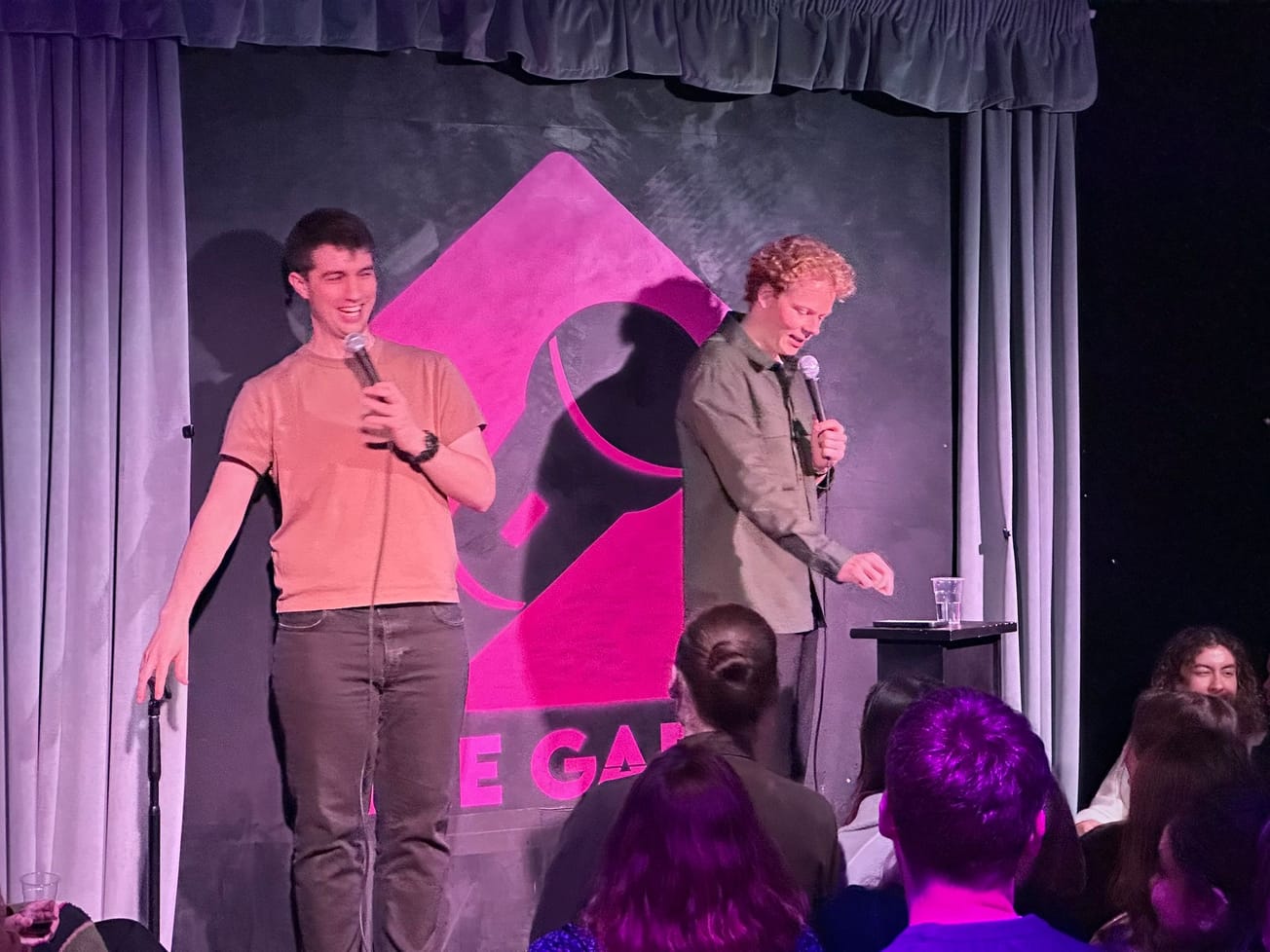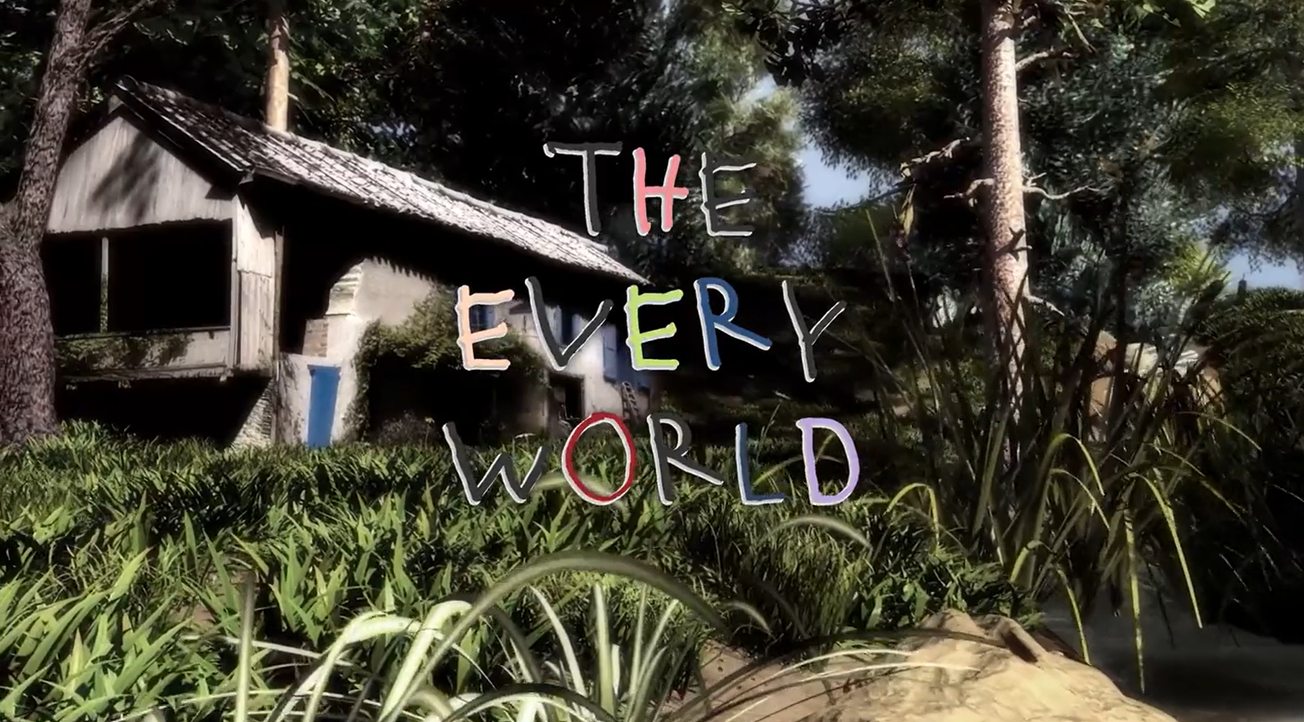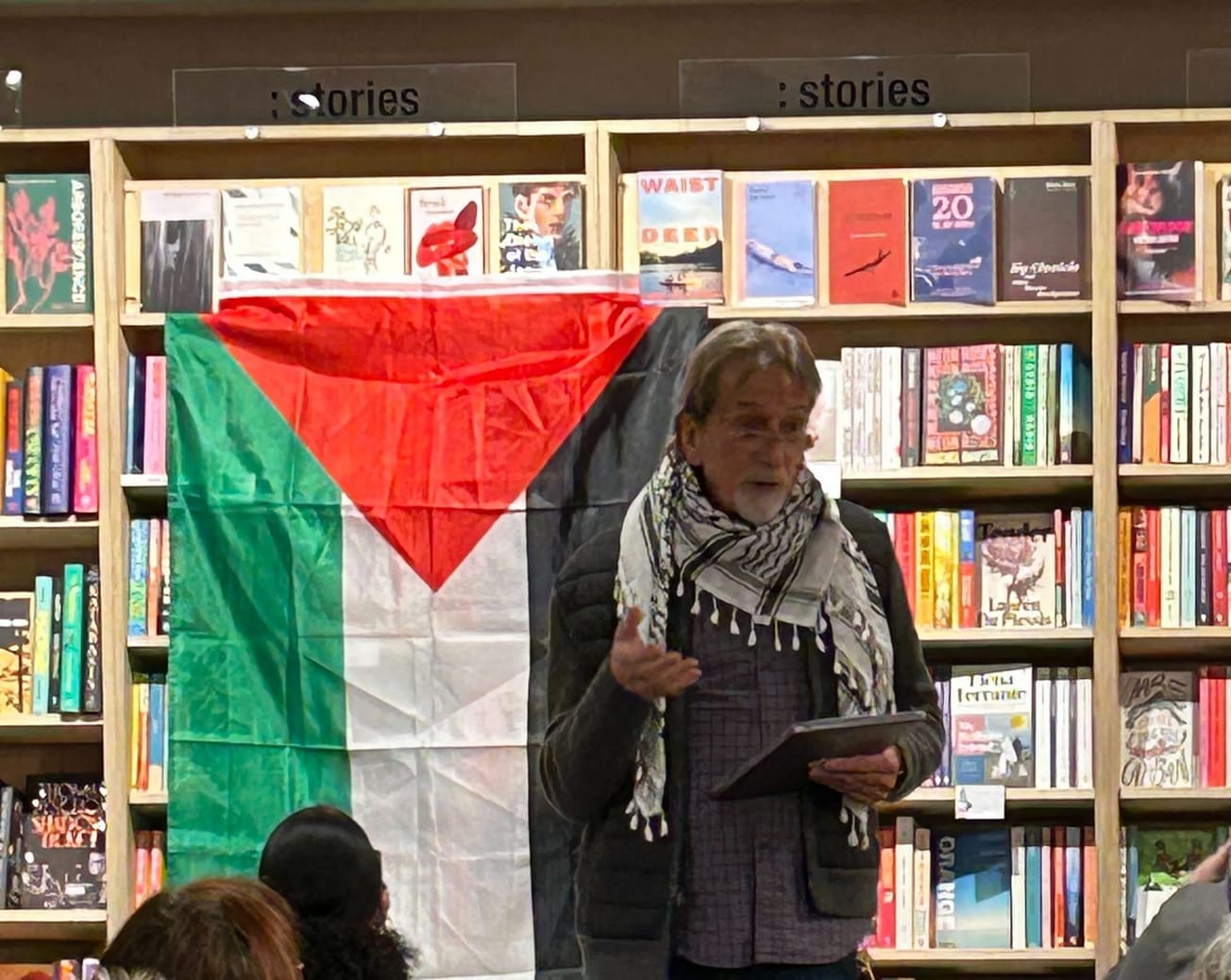By Leah Martindale, Film and TV Editor
An evening of renowned poetry, discussions of Black History Month and explorations of artistic cultural identity. Celebrated award-winning poets Tjawangwa Dema and Vanessa Kisuule perform at Bristol SU.
Tjawangwa ‘TJ’ Dema is a Botswanan-born, Bristol-based poet, arts administrator and teaching assistant; published by the University of Nebraska Press and winner of the Sillerman Prize for African Poetry. Vanessa Kisuule is a black Kentian poet, University of Bristol graduate, and octopus enthusiast; winner of over 10 slam titles, twice published by Burning Eye, and the Bristol City Poet for 2018-2020.
Together they demonstrate the vast canvas of black artists in poetry, an art form so often perceived as a homogenous and mystical creature: ‘A white, previously alive, now dead, guy, wandering lonely as a cloud.’ - TJ Dema. This Black History Month both performed sets at the University of Bristol’s Ansen Room Bar, where I was lucky enough to bear witness as they wrestled with both words and concepts of identity - in verse and in person.

Dema led the evening, MC’d by Elsie Aluko, with seamless transitions from poems to speaking, differentiated only by a metronomic counting (1, 2, 3…) rising to the number of poems we were now at. As she explained in the Q&A session, Dema’s lyrical and cadent performance style emanates from her Botswanian roots.
While poetry is not an unknown art form amongst the modest 2 million population of Botswana, as many residents are illiterate, by necessity the form is spread orally. While the connotations of ‘spoken word poet’ initially affronted Dema when presented with the label in the West, her style is distinctly recognisable as a learned spoken word performance, with specifics of rhythm and tempo minutely trained and honed.
While Dema spoke of her inspirations drawing from the community and society in Botswana, Kisuule named them explicitly. Kissule implored the audience to attend any event with Salena Godden on the listing, and performed a cover of Lucille Clifton’s unidentifiably moving ‘Won’t You Celebrate With Me’. Dema’s performance style is calming and rhythmic, like humming a tune as you embroider a pattern you have newly learned. Kisuule, however, performs like a comedian giving a eulogy - the gut-punch of reality slips through the ribs of unexpected comedy. Both poets prove the age-old misconception that poetry is inaccessible to be nothing but lies; poetry can be interesting, engaging and young.
So @tjdema was brilliant last night in Bristol. "I have been spotted / spreading one leg toward the light [...] I have grown gills in the name of a storm coming."
— Sad Press (@sadpresspoetry) October 19, 2019
A particularly moving poem of Dema’s was ‘Bread for the Birds’, which talks of ‘a truth as sincere as a lie’, ‘this gingerbread-man existence’ in which ‘we think ourselves gods’. In particular, the poem pertinently asks, ‘For when the summer does not an end seem to find; when the ice crackles quiet against your feet of clay: will you know the sound of death coming?’
Dema’s use of language flirts around meaning, painting delicate pictures with delicate beats and delicate delivery. A standout poem of Kisuule’s was ‘Octopus’, a poem that juggled levity and melancholy with all eight arms. The poem talks of how the ‘final syllable [of octopuses] spits and hisses’ with a cadence that makes your stomach roll, like driving over a speed bump. Kisuule described the ‘mouth-feel’ of poetry as like a hard boiled sweet, that sits in your mouth in a comfortable wholeness.

Of course, their positioning as a listing in Black History Month did not go unnoted. Dema joked that ‘Vanessa is always popular’, but that her listings are often ‘seasonal’ as people and institutions attempt to ‘fill boxes’. Dema noted that her early life in Botswana, a country she described in terms that implied comfort and ease in many aspects (read: war, international intervention) led to her having to at times ‘work the muscle of blackness’.
In essence, the inherent knowledge of societal othering that many people of colour and black people like myself are all-too familiar with was unfamiliar to her. The connotations of blackness as inherently ‘ghetto’ or ‘sassy and loud’ had never confronted her, as she had never experienced a white-led societal hierarchy before. She had to train the muscle-memory cringe response and overcompensation to microaggressions that Kisuule described in a familiar clarity. When she opened her poem ‘Octopus’ with a facetious quip on its socio-political relevance, the comment was a double-edged sword - while, of course, a poem about befriending an octopus was not Black History Month centred, it highlighted the pigeonholing we place on black stories.

Black stories told by black voices are always important and intercept the status quo with an inherent activism; simply by existing as black poets, artists like Dema and Kisuule challenge the preconceptions of poetry as an old white man’s game. However, as Kisuule so aptly put it: ‘We know what gets certain white people’s nipples hard.’ Stories of slavery and struggle are pornographised to the point of illegibility at times, they are glamourised and fetishised and therefore lose their truthful origins. The very act of existing as a black woman is performing a black narrative. However, Kisuule and Dema both demonstrate how important it is to acknowledge that black people have stories that, despite their blackness, do not need to be about that: this can be empowering, important, and exciting, as much as the next househelp narrative.
★★★★★
Featured Image: Bristol SU Live
Do you enjoy spoken word poetry?








